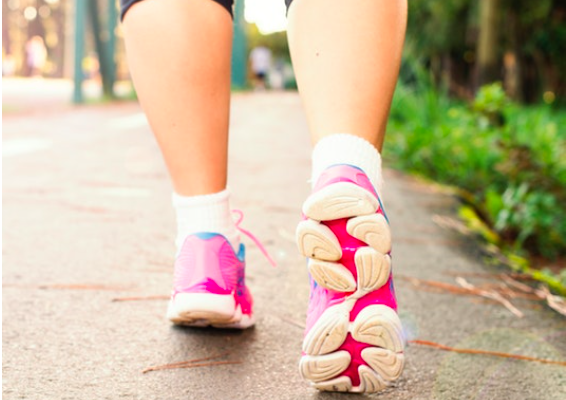When you are thinking about losing body weight in a healthy way, it is important that you keep your diet under check. Your daily food consumption plays a vital role in controlling your body weight. You may either undergo weight loss or may end up gaining body weight. But what if you could modify your diet? How about you plan your diet in a way where you can consume low-fat foods, which are delicious yet healthy? You need to start by tracking the number of calories that you are consuming every day.
There are some pointers that you should remember. When you have excess calories intake, your body stores this extra calorie in the form of fat. This fat can come from foods that you eat, including trans-fat, saturated fats or even low-fat foods. Remember that you need to distinguish between high-calorie foods and high-fat foods. If you think that you will replace foods containing a higher amount of fat with high-calorie foods, you can gain weight. For losing body weight, you need to cut down on the calorie intake that eventually burns the excess calories you have put on.
Tips on cooking foods with low-fat content
- When you are consuming poultry meat, carefully remove the visible fat lines and trim the skin.
- Try refrigerating food items like stews, soups, and gravies. Before you eat, you can easily remove the fat layer from the top of the foods.
- While you are grilling, baking or broiling meat, try doing that by placing the meat on the rack to allow the dripping of fat. Avoid frying food items.
- On cooked vegetables, you may sprinkle herbs, spices and lemon juice rather than fatty cheese, cream or butter.
- You may consider using chives, low-fat yogurt or plain yogurt on baked potatoes instead of sour cream. This is because you will find fat in sour cream, so just cut down on that little amount of fat as well.
Low-fat foods that you may consume
- Green leafy veggies
When you have leafy greens in your diet, you have practically no fear of gaining body weight. Green vegetables have virtually zero amount of fat in them but loaded with innumerable minerals and vitamins. The macro and micronutrients that you will find in any leafy greens include calcium, folate, potassium, Vitamin K and Vitamin A. You can also get relieved from inflammation and pain by consuming green vegetables. Apart from that other benefits include relief from heart diseases, cancer, and diabetes. Some of the fresh commonly available leafy veggies are – kale, arugula, Swiss chard, spinach, Romaine lettuce, and Collard greens. Consume these veggies in the form of salads or smoothies to experience effective weight loss.Also, you could add microgreens to in your diet. This tiny greens are a new health trend that is showing fantastic benefits and are a really simple way to introduce more greens into a diet. It contains up to five times more vitamins and minerals than their fully grown counterparts. For detail information about microrgeens read the full post here.
- Fruits
You can try your diet including numerous fruits as they are extremely low in fat, but very high in macro and micronutrients. Almost all types of fruits that you generally eat have a higher amount of vitamins, and minerals. Not only weight loss, but fruits can also help you in removing harmful toxins and free radicals from your body. You can enjoy fruits in your diet either by taking it as juices, salads, dried form or even cooked.
- Legumes and beans
Pulses or legumes can include peas, beans, and other veggies and you can add them the way you want. Particularly aiming at weight loss, you need to plan your consumption of pulses properly to keep a check on your calorie intake. This will help you maintain your blood sugar levels, cholesterol, and blood pressure by taking legumes. Adding on to that, legumes contain a very high amount of fiber that keeps you full and also aid weight loss.
Is low-fat dairy or poultry beneficial for weight loss?
You can prefer consuming low-fat yogurt or curd while planning your diet. There are different sorts of milk like fat-free milk or skimmed milk, which you can opt for instead of normal milk. Try having cottage cheese instead of normal cheese or other cream based dairy products. Go for fortified milk that contains adequate amounts of vitamin D and calcium, which will help you strengthen your bones. Dairy products are very rich in different kinds of minerals and proteins and vitamins like B12, B6, niacin, and riboflavin. This is why most nutrionist will add dairy products to your diet. Go for soya milk or soy yogurt if you are vegan but want to get the best dairy treats.
You may supplement your low-fat diet with an adequate amount of chicken breast, instead of other meat products. If you take one serving of chicken breast, your body will be provided with absolute amounts of proteins and energy. Chicken offers you with all the important proteins, vitamins (like B6, niacin), phosphorus and selenium.
Can you include eggs in your low-fat diet?
If you are considering whole eggs as low fat-containing food, then you are wrong. You need to go for the egg whites which are actually the low-fat part of the egg. This is because the white part of the egg is the protein albumin, while the yellow part is the fatty yolk. Thus, if you have egg whites, you will have zero fear of gaining weight. You will be surprised to know that from one egg:
- white has 0gm of fat
- yolk has 5gm of fat
Therefore, egg whites are something you can think about including in your low-fat diet chart for effective weight loss. These are rich in protein and are exactly what you need after a workout.
How beneficial are cruciferous vegetables?
By consuming these vegetables, you can actually end up with proper amounts of fiber, vitamins, and minerals in your body. Cruciferous vegetables are a huge source of key macronutrients and micronutrients. You may include these vegetables in your diet for healthy weight loss and overall well-being.
Some of them include Brussels sprouts, broccoli, cauliflower, cabbage, turnips, and bok choy. They practically have almost no carbs and you can include them safely in your low-fat diet too.










